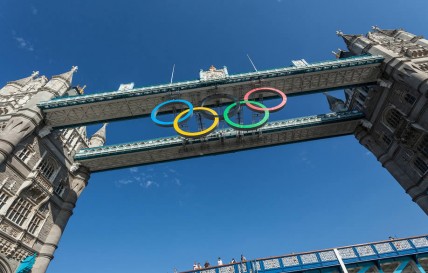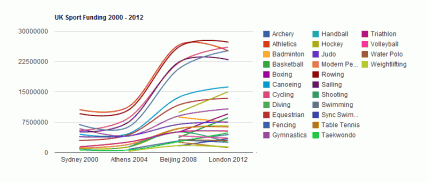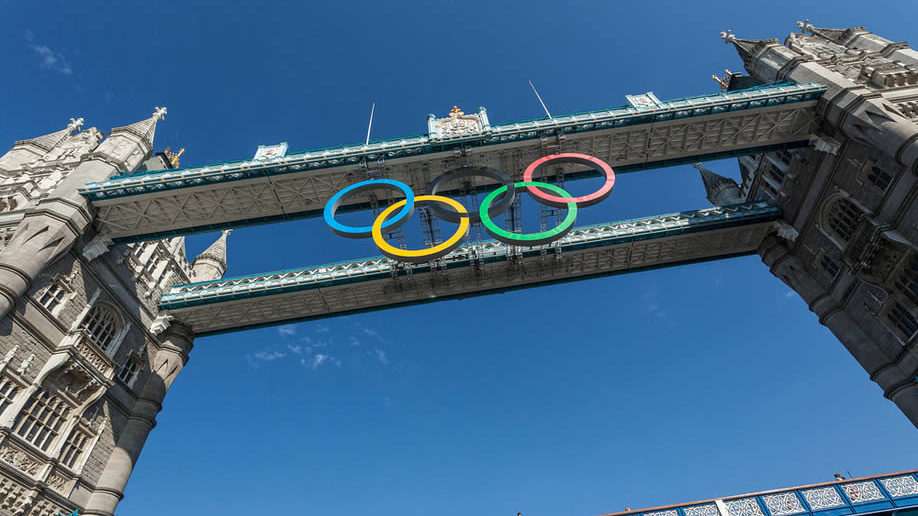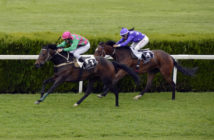
Photograph by Duncan Rawlinson
The London 2012 Olympics have been heralded as a success around the world with the transport system holding up, the 70,000 volunteers being helpful and putting a smile on everyone’s face, beautifully bizarre ceremonies, and then there was the sport. The US regained the medal top spot from China, but it was TeamGB that made some of the biggest gains, with the UK punching notably above its weight in third spot with 29 gold and 65 medals overall – the best performance for a hundred years.
Just as the games took an unbelievable amount of organisation and a lot of money to pull of its success, so the success of TeamGB was aided in a huge way by the increased funding from the Lottery and UK Sport to nurture the talents of individuals from the time when their talent is identified through to the podium. We would have no medals without the talent, commitment, and hard work of the athletes and their teams – but UK Sport gives them the opportunity to get there.
After the poor performance in the Atlanta Olympics in 1996, the government have been steadily increasing the much needed investment the British athletes, and the dramatic improvements in Beijing and again for London have also come after notable increases. We’ve pulled together the various statistics of investment in each sport over the last four Olympic games to demonstrate where the money is being spent and how that is reflected in the medal table.
This first graph shows the huge increase in medal tally from 2000 – 2012 alongside the notable increase in funding for Beijing and London which have been the country’s best two Olympic performances in a century (data):

This graph shows the increases in funding for each sport individually over the past twelve years (data):

Here we’ve got the breakdown of gold medals over the last four Olympic games for each sport (data):

And finally we have the breakdown of total medals over the last four Olympics for each sport (data):

What does the data show us?
A quick look at the tables show that to more than triple the gold medal count from 9 to 29 from Athens to London we had to increase funding from £70 million to £264 million, more than a tripling in cost as well. The total medal count just over doubles from 30 to 65 within the same time frame. This seems an almost linear correlation, but such analysis would be over simplistic – the huge increase in investment made in the years 2004 after will have effects far wider reaching than simply the medal table in 2012 – there has been development in grass-roots sport, in all the levels in a wide array of sports all the way up to that top tier of Olympians with which we have found such glory.
It is also possible to breakdown the investment in each sport and how that had an effect on the medal table. Cycling, for example gave us one gold in Sydney and eight golds in London, with the investment growing from £5.4 million to £26 million – but as with any sport, there are numerous other factors in play that caused this impressive result alongside the funding – importantly, there are role models in sports which excite the country and get young people excited and joining up, and cycling is one such sport.
Other interesting statistics to pull out of the figures is the cost per medal and cost per gold at each Olympic games. In Sydney in 2000, TeamGB got 11 golds and 28 medals in total at an average cost of £5.35 million per gold, or £2.1 million per medal, whilst at London TeamGB managed 29 golds (costing £9 million each) and 65 medals in total (costing £4 million each). There is no linear correlation between the investment and the medal tally as expected, and the extra investment in sport for Beijing and London, which has now been agreed to continue to Rio in 2016, does not show how much of that money is actually invested in the young and in facilities that were in dire need of repair.
Hosting the Olympic and the medal successes has made country proud and gave us joy at a time when the economy is bleak, making sure London maintains its position as a global city. The funding from UK Sport had a good deal to do with this situation, but it is in the future that we will continue to see the benefits form this investment – from a population that has been invigorated into getting onto the playing fields, onto their bike, or even just into the gym, to facilities that can maintain this position of pride.




